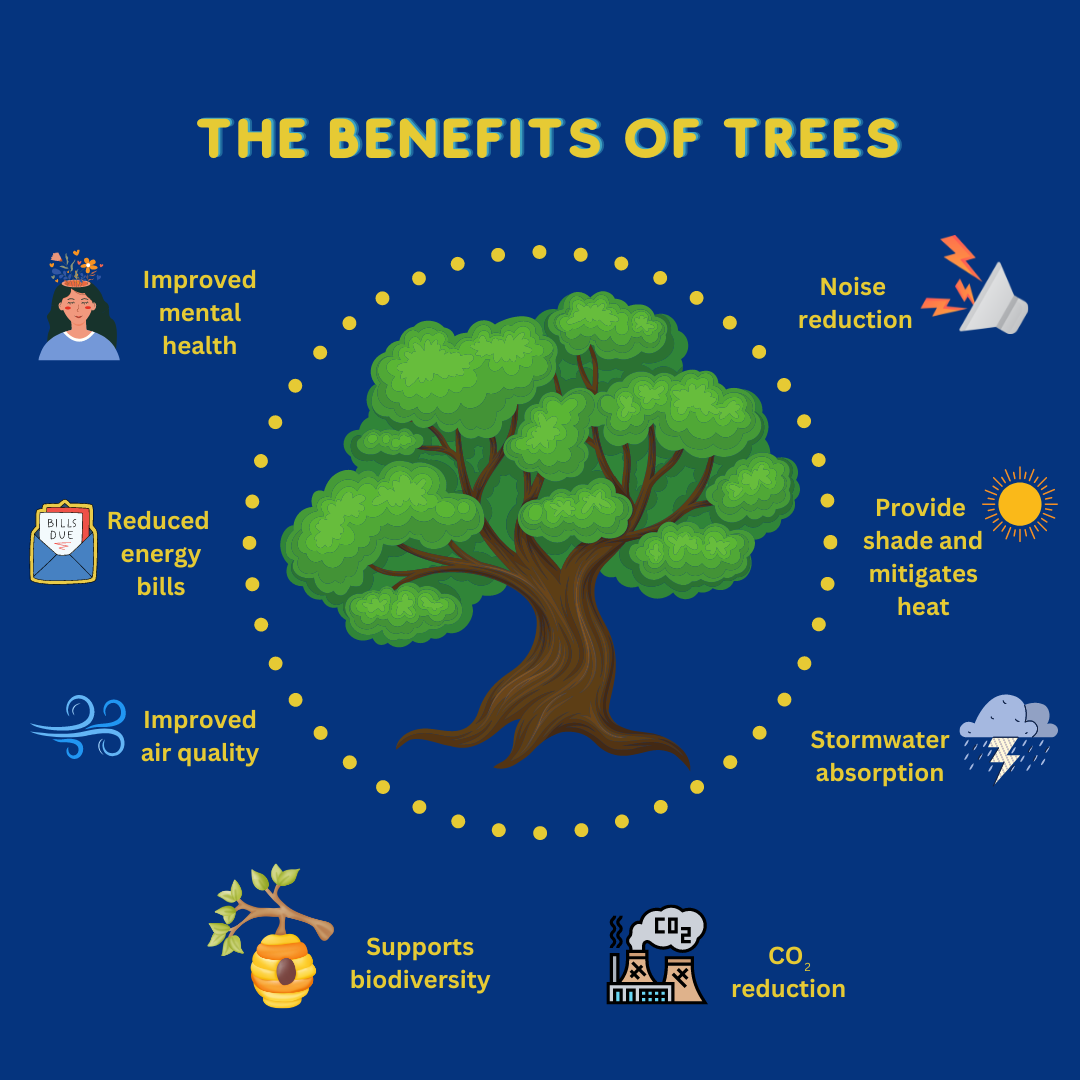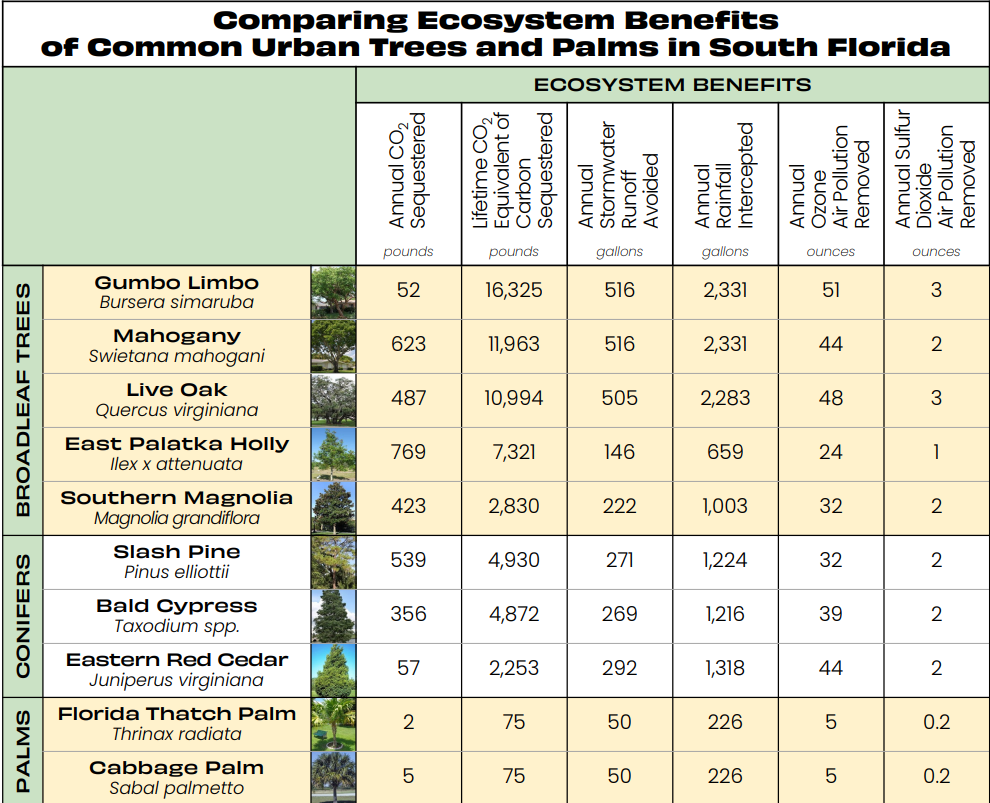In our efforts to combat climate change and enhance the quality of life in our urban environments, trees emerge as a climate solution. They offer a myriad of ecosystem services and play a crucial role in mitigating the impact of climate pollution. Through the process of carbon sequestration, trees absorb carbon dioxide from the atmosphere during photosynthesis, storing it within their biomass and helping to balance out the harmful emissions that contribute to climate change. In this blog, we will delve into the various ways trees contribute to climate resilience and how we can harness their potential to build a greener future.
The Benefits of Trees

Reduced Utility Bills
One significant benefit of strategically planting trees is their cooling effect, which can lead to cost savings for residents. By providing shade near homes, trees reduce the need for air conditioning, resulting in lower energy bills. Moreover, dense forestry acts as a natural windbreaker, diminishing the force of winds and further contributing to energy savings. Notably, a study conducted in a large midwestern US city revealed that urban tree plantings saved an impressive $6.8 million in energy costs and also increased property values by $7.1 million (EDIS).
Urban Heat Island and Stormwater Management
In addition to their cooling effect, trees also play a crucial role in managing urban heat islands (UHI) and stormwater. Cities tend to be hotter than surrounding suburban areas due to the heat island effect, which arises from increased engine usage, building construction, and a reduction in tree cover. By providing cooling shade and reducing heat-absorbing surfaces like concrete and asphalt, trees help combat this phenomenon. Furthermore, the canopy coverage of trees aids in managing stormwater runoff and preventing flooding by absorbing water, in return improving local climate conditions by absorbing water.
Supporting Biodiversity and Carbon Sequestration
While trees, in general, have a positive impact on our environment, it’s important to recognize that not all tree species offer the same level of benefits. Native trees, which are well adapted to regional climates, play a crucial role in supporting local ecosystems and promoting biodiversity. For instance, let’s consider Australian Pines, a frequently found tree in Florida, which unfortunately provide minimal habitat for wildlife. The shallow root system of Australian pine trees disrupts the nesting habits of endangered American crocodiles and sea turtles along the coast. These trees are also prone to uprooting and falling during strong winds, posing a notable hazard to coastal storm evacuation routes.
Furthermore, trees differ in their carbon sequestration capabilities. Broadleaf trees such as oak, mahogany, pine, and cedar can effectively sequester up to 769 pounds of carbon annually, making them excellent choices for mitigating climate impact. On the other hand, palms sequester only 2 to 5 pounds of carbon each year. While Florida boasts a variety of native iconic palm trees that may not sequester as much carbon, they still contribute as a climate solution. This underscores the significance of preserving native trees, as they play a pivotal role in combatting climate change, providing shade, and creating essential wildlife habitats.
Positive Mental Health
The significance of trees goes beyond their ecological contributions; they also have a positive impact on our mental health and well-being. Studies have shown that neighborhoods with more tree canopy coverage experience lower rates of psychological distress and better overall health. Trees, with their aesthetic appeal, play a crucial role in creating welcoming and serene urban environments (APA).
Conclusion
Trees are nature’s climate solution and vital contributors to the health of our ecosystems and urban environments. By understanding their importance, supporting tree-planting initiatives, and prioritizing native tree species, we can create a greener, healthier, and more resilient world for generations to come.
Resources:
- Climate Solutions: Planting Trees Flyer
- EDIS: Comparative Ecosystem Benefits of Common Urban Trees and Palms in South Florida
- Treejuvination: Urban Forestry
- i-Tree MyTree Benefits Database
- Learn more about sustainability and efforts in Sarasota County
- Arbor Day Foundation
 5
5

